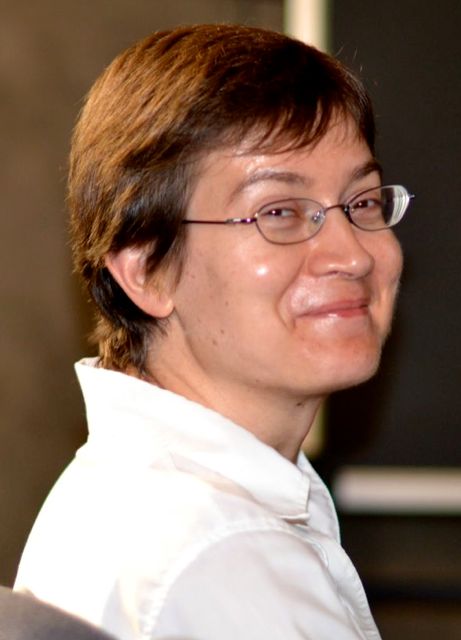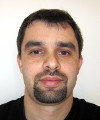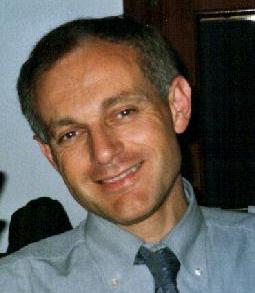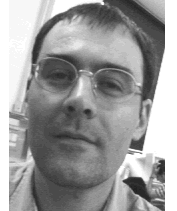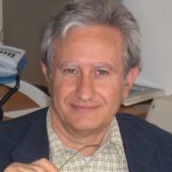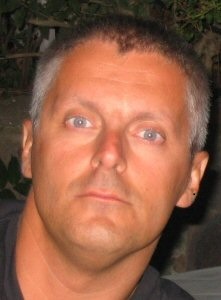Studiare
In questa sezione è possibile reperire le informazioni riguardanti l'organizzazione pratica del corso, lo svolgimento delle attività didattiche, le opportunità formative e i contatti utili durante tutto il percorso di studi, fino al conseguimento del titolo finale.
Calendario accademico
Il calendario accademico riporta le scadenze, gli adempimenti e i periodi rilevanti per la componente studentesca, personale docente e personale dell'Università. Sono inoltre indicate le festività e le chiusure ufficiali dell'Ateneo.
L’anno accademico inizia il 1° ottobre e termina il 30 settembre dell'anno successivo.
Calendario didattico
Il calendario didattico indica i periodi di svolgimento delle attività formative, di sessioni d'esami, di laurea e di chiusura per le festività.
| Periodo | Dal | Al |
|---|---|---|
| Periodo zero | 19-set-2005 | 10-ott-2005 |
| 1° Q - 2° anno e successivi | 3-ott-2005 | 2-dic-2005 |
| 1° Q - 1° Anno | 17-ott-2005 | 2-dic-2005 |
| 2° Q | 8-gen-2006 | 9-mar-2006 |
| 3° Q | 3-apr-2006 | 9-giu-2006 |
| Sessione | Dal | Al |
|---|---|---|
| Esami periodo 0 | 17-ott-2005 | 21-ott-2005 |
| I Sessione esami | 12-dic-2005 | 23-dic-2005 |
| II Sessione esami | 20-mar-2006 | 31-mar-2006 |
| Sessione estiva | 19-giu-2006 | 28-lug-2006 |
| Sessione autunnale | 4-set-2006 | 29-set-2006 |
| Sessione | Dal | Al |
|---|---|---|
| Sessione straordinaria | 14-dic-2005 | 14-dic-2005 |
| Sessione invernale | 15-mar-2006 | 15-mar-2006 |
| Sessione estiva | 19-lug-2006 | 19-lug-2006 |
| Sessione autunnale | 13-set-2006 | 13-set-2006 |
| Periodo | Dal | Al |
|---|---|---|
| Festa di tutti i Santi | 1-nov-2005 | 1-nov-2005 |
| Immacolata Concezione | 8-dic-2005 | 8-dic-2005 |
| Vacanze Natalizie | 23-dic-2005 | 7-gen-2006 |
| Vacanze Pasquali | 13-apr-2006 | 19-apr-2006 |
| Festa della Liberazione | 25-apr-2006 | 25-apr-2006 |
| Festa dei Lavoratori | 1-mag-2006 | 1-mag-2006 |
| Festività Santo Patrono | 21-mag-2006 | 21-mag-2006 |
| Festa della Repubblica | 2-giu-2006 | 2-giu-2006 |
| Vacanze Estive | 31-lug-2006 | 31-ago-2006 |
Calendario esami
Gli appelli d'esame sono gestiti dalla Unità Operativa Segreteria Corsi di Studio Scienze e Ingegneria.
Per consultazione e iscrizione agli appelli d'esame visita il sistema ESSE3.
Per problemi inerenti allo smarrimento della password di accesso ai servizi on-line si prega di rivolgersi al supporto informatico della Scuola o al servizio recupero credenziali
Docenti
 nome.cognome[at]uniud.it
nome.cognome[at]uniud.it
 gino.mariotto@univr.it
gino.mariotto@univr.it
 angelo.pica@univr.it
angelo.pica@univr.it
Piano Didattico
Il piano didattico è l'elenco degli insegnamenti e delle altre attività formative che devono essere sostenute nel corso della propria carriera universitaria.
Selezionare il piano didattico in base all'anno accademico di iscrizione.
4° Anno Attivato nell'A.A. 2008/2009
| Insegnamenti | Crediti | TAF | SSD |
|---|
Un insegnamento a scelta tra le seguenti discipline fisiche affiniDue insegnamenti a scelta tra i seguenti5° Anno Attivato nell'A.A. 2009/2010
| Insegnamenti | Crediti | TAF | SSD |
|---|
| Insegnamenti | Crediti | TAF | SSD |
|---|
| Insegnamenti | Crediti | TAF | SSD |
|---|
Un insegnamento a scelta tra le seguenti discipline fisiche affiniDue insegnamenti a scelta tra i seguenti| Insegnamenti | Crediti | TAF | SSD |
|---|
| Insegnamenti | Crediti | TAF | SSD |
|---|
Sette insegnamenti a scelta tra le seguenti discipline informatiche caratterizzantiUn insegnamento nell'ambito affine Interdisciplinarità e applicazioniLegenda | Tipo Attività Formativa (TAF)
TAF (Tipologia Attività Formativa) Tutti gli insegnamenti e le attività sono classificate in diversi tipi di attività formativa, indicati da una lettera.
Teoria e tecniche del riconoscimento (2008/2009)
Codice insegnamento
4S00072
Crediti
5
Coordinatore
Lingua di erogazione
Italiano
Sede
VERONA
L'insegnamento è organizzato come segue:
Obiettivi formativi
Modulo: Teoria
-------
Il corso intende fornire i fondamenti teorici e le metodologie principali relative all’analisi e riconoscimento automatico di dati di qualsiasi tipo, detti tipicamente pattern. Questa disciplina è alla base o completa molte altre discipline di più larga diffusione come l’elaborazione delle immagini, la visione, l’intelligenza artificiale, l’analisi di grosse quantità di dati, le basi di dati, e numerose altre.
Nel corso verrà data enfasi alle tecniche probabilistiche e statistiche con particolar riferimento all’apprendimento automatico di sistemi volti al riconoscimento e la classificazione.
Le applicazioni che questa disciplina coinvolge sono molteplici. Tra queste ci sono le applicazioni legati all’elaborazione delle immagini e visione, data mining, la bioinformatica, analisi ed interpretazione di dati medicali e biologici (e.g., genomica, proteomica, etc.), la biometria, l'imaging biomedicale, la videosorveglianza, la robotica, il riconoscimento della voce e numerose altre.
Modulo: Laboratorio
-------
Si veda la descrizione nella parte Teoria.
Programma
Modulo: Teoria
-------
* Introduzione: cos’è, a cosa serve, sistemi, applicazioni
* Riconoscimento e classificazione••
* Teoria della decisione di Bayes •
* Stima dei parametri
* Metodi non parametrici
* Classificatori lineari, non lineari e funzioni discriminanti
* Estrazione e selezione di feature, PCA e trasformata di Fisher
* Algoritmo Expectation-Maximization e misture di Gaussiane
* Metodi generativi e discriminativi
* Metodi Kernel e Support Vector Machines
* Reti neurali artificiali
* Hidden Markov Models
* Metodi di classificazione non supervisionata (clustering)
Il corso viene svolto in 32 ore di lezioni frontali e 12 ore di laboratorio. L'attività di laboratorio prevede la pratica e risoluzione di esercizi mediante l'uso di MATLAB volti all'apprendimento pratico e alla miglior comprensione della teoria svolta a lezione.
Modulo: Laboratorio
-------
Si veda la descrizione nella parte Teoria.
Modalità d'esame
Modulo: Teoria
-------
La verifica del profitto avverrà mediante un'attività di progetto e una breve prova orale. Il progetto riguarderà gli argomenti trattati a lezione con riferimento all'elaborazione delle immagini e visione, ma anche altre applicazioni potranno essere considerate. La prova orale verterà sui temi sviluppati a lezione e potrà essere sostituita da una prova scritta con brevi domande simili alla prova orale.
Il superamento della prova porta all'acquisizione di 5 crediti, ovvero di 1 unità didattica.
Modulo: Laboratorio
-------
Si veda la descrizione nella parte Teoria.
Tipologia di Attività formativa D e F
Insegnamenti non ancora inseriti
Prospettive
Avvisi degli insegnamenti e del corso di studio
Per la comunità studentesca
Se sei già iscritta/o a un corso di studio, puoi consultare tutti gli avvisi relativi al tuo corso di studi nella tua area riservata MyUnivr.
In questo portale potrai visualizzare informazioni, risorse e servizi utili che riguardano la tua carriera universitaria (libretto online, gestione della carriera Esse3, corsi e-learning, email istituzionale, modulistica di segreteria, procedure amministrative, ecc.).
Entra in MyUnivr con le tue credenziali GIA: solo così potrai ricevere notifica di tutti gli avvisi dei tuoi docenti e della tua segreteria via mail e a breve anche tramite l'app Univr.
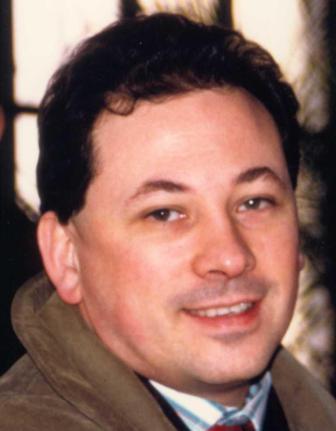
 +39 045 802 7980
+39 045 802 7980
